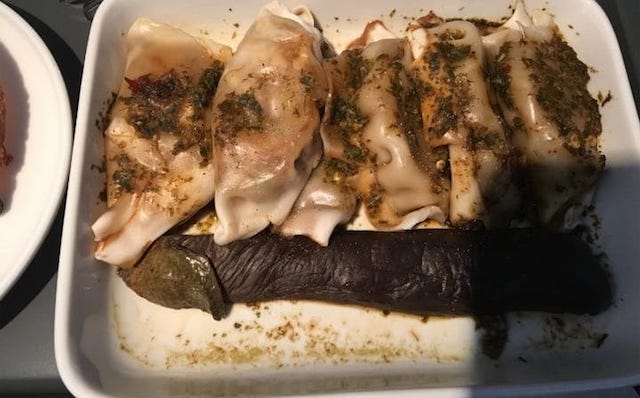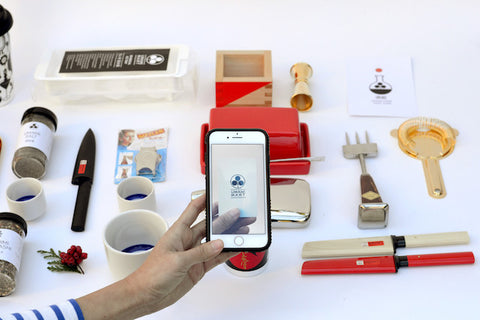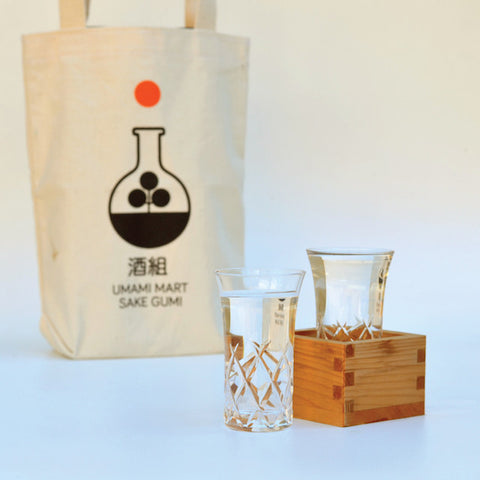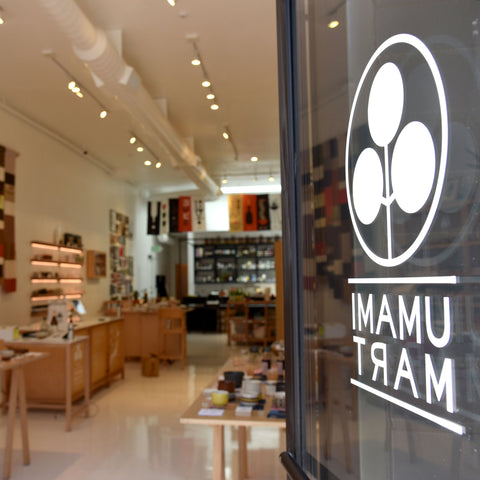 - Behold, the nerdiest Gingerbread creation of the year. May the force be with whoever helps devour this edible Death Star. (io9/imgur)
- "Civilization begins with distillation," once said William Faulkner. The famed Southern author was a man who loved to drink. Drink and write. He claimed, "I usually write at night. I always keep my whiskey within reach." Not surprising, then, that the hot toddy would be one of Faulkner's go-to beverages. His niece shared Faulkner's hot toddy recipe with The Great American Writers' Cookbook. While, I can't promise making this hot toddy will make you an amazing writer, it'll surely keep you warm this winter. (Town and Country)
- Remember back in the day, when most of drank crappy canned coffee made at home in a counter-top electric coffee maker? These days, it's easy to take those machines for granted or poo-poo them for not making the best tasting brew, but the invention of the automatic drip coffee maker was a huge step-up from its predecessor – the stovetop percolator. Auto drip makers allowed coffee to be brewed at a regulated temperature of 200 degrees – any higher creates a bitter tasting coffee; any lower is too weak. Mr. Coffee – patented in 1972 – was the first brand of automatic drip coffee makers intended for home use and quickly became a hit. I won't trade my pour-over cone for a Mr. Coffee machine, but it makes me wonder how I'll be making my morning brew in 20 years. (NPR)
- If you're going to share a recipe on live tv, you might want to make sure it's edible first. News anchor Leslie Horton of Global News in Canada made an artichoke dip that even her co-workers couldn't say anything nice about... or keep down. (Pop Sugar)
- You don't know jack(fruit): According to Pinterest's official trend report, jackfruit is one of the 10 most popular pinned foods and will likely be one of 2017's "it" ingredients. Why jackfruit, you wonder? Some vegans and vegetarians are all about it as a faux-meat substitute for pulled pork.(Huffington Post)
- Behold, the nerdiest Gingerbread creation of the year. May the force be with whoever helps devour this edible Death Star. (io9/imgur)
- "Civilization begins with distillation," once said William Faulkner. The famed Southern author was a man who loved to drink. Drink and write. He claimed, "I usually write at night. I always keep my whiskey within reach." Not surprising, then, that the hot toddy would be one of Faulkner's go-to beverages. His niece shared Faulkner's hot toddy recipe with The Great American Writers' Cookbook. While, I can't promise making this hot toddy will make you an amazing writer, it'll surely keep you warm this winter. (Town and Country)
- Remember back in the day, when most of drank crappy canned coffee made at home in a counter-top electric coffee maker? These days, it's easy to take those machines for granted or poo-poo them for not making the best tasting brew, but the invention of the automatic drip coffee maker was a huge step-up from its predecessor – the stovetop percolator. Auto drip makers allowed coffee to be brewed at a regulated temperature of 200 degrees – any higher creates a bitter tasting coffee; any lower is too weak. Mr. Coffee – patented in 1972 – was the first brand of automatic drip coffee makers intended for home use and quickly became a hit. I won't trade my pour-over cone for a Mr. Coffee machine, but it makes me wonder how I'll be making my morning brew in 20 years. (NPR)
- If you're going to share a recipe on live tv, you might want to make sure it's edible first. News anchor Leslie Horton of Global News in Canada made an artichoke dip that even her co-workers couldn't say anything nice about... or keep down. (Pop Sugar)
- You don't know jack(fruit): According to Pinterest's official trend report, jackfruit is one of the 10 most popular pinned foods and will likely be one of 2017's "it" ingredients. Why jackfruit, you wonder? Some vegans and vegetarians are all about it as a faux-meat substitute for pulled pork.(Huffington Post)
 - And the winner of least appetizing airline meal goes to... Australia's Qantas airlines, which served this phallic Japanese eggplant with dumplings on a flight from Sydney to Brisbane. I think I'll stick with peanuts. (The Telegraph)
- Los Angeles' craft cocktail revival is strong, but there were a good 60 to 70 years where it was pretty bad. The mid-aughts brought on the renaissance for good drink-making, but at first it was just an imitation of what was happening in New York. Now, claims the LA Weekly, Los Angeles' cocktail scene is finally having its moment. (LA Weekly)
- And the winner of least appetizing airline meal goes to... Australia's Qantas airlines, which served this phallic Japanese eggplant with dumplings on a flight from Sydney to Brisbane. I think I'll stick with peanuts. (The Telegraph)
- Los Angeles' craft cocktail revival is strong, but there were a good 60 to 70 years where it was pretty bad. The mid-aughts brought on the renaissance for good drink-making, but at first it was just an imitation of what was happening in New York. Now, claims the LA Weekly, Los Angeles' cocktail scene is finally having its moment. (LA Weekly)
The Umami Reader: Mining the internet for stuff about food worth reading and watching




Comments (0)
There are no comments for this article. Be the first one to leave a message!